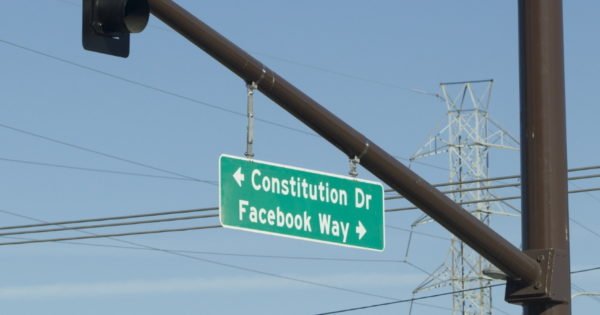Facebook CEO Mark Zuckerberg waited until late Friday to address a week of criticism, both internal and external, over his refusal to act on posts from President Donald Trump, and that response was mostly, “We’re going to review.”
To recap, Trump posted on Facebook and Twitter last Tuesday, claiming that mail-in ballots will not be “anything less than substantially fraudulent.
Twitter posted a fact-check label on two of his tweets, directing users to credible sources and drawing the ire of the president, who issued an executive order last Thursday with the aim of rolling back Section 230 of the Communications Decency Act, which provides protection to social networks by removing liability for content generated by their users. Facebook took no action.
In the wee hours of last Friday morning, in response to protests over the death of George Floyd at the hands of Minneapolis police, a post from Trump on both social networks contained the phrase, “When the looting starts, the shooting starts.”
Twitter placed a label over the tweet for violating its rules on glorifying violence, while Facebook again took no action.
Zuckerberg said in a Facebook post late last Friday, “Personally, I have a visceral negative reaction to this kind of divisive and inflammatory rhetoric,” but the post would not be taken down because references to the National Guard implied state action, which he felt people needed to know about.
That explanation did little to pacify critics, including Facebook employees, some of whom left the company this week due to their strong feelings about how this issue was handled.
Again waiting until the bitter end of the work week, Zuckerberg posted Friday evening, “As we continue to process this difficult moment, I want to acknowledge the real pain expressed by members of our community. I also want to acknowledge that the decision I made last week has left many of you angry, disappointed and hurt. So, I am especially grateful that, despite your heartfelt disagreement, you remain focused on taking positive steps to move forward. That can’t be easy, so I just want to say I hear you and I’m grateful.”
He addressed seven areas to be examined after gathering feedback from employees, civil rights experts and internal subject matter experts, often leading with the phrase, “We’re going to review,” and warning that changes may not be made in all of these areas.
- Zuckerberg pledged to review policies regarding discussion and threats of state use of force, saying the two specific situations the social network will focus on are excessive use of police or state force, and ongoing civil unrest or violent conflicts.
- Voter suppression policies will be reviewed, taking into account the reality of voting during a pandemic. He wrote, “There’s a good chance that there will be unprecedented fear and confusion around going to the polls in November, and some will likely try to capitalize on that confusion.”
- Facebook will review options for content that violates or partially violates its rules besides simply allowing it to remain on the platform or taking it down, including potentially adding labels, a la Twitter. Zuckerberg cautioned, “I worry that this approach has a risk of leading us to editorialize on content we don’t like even if it doesn’t violate our policies, so I think we need to proceed very carefully.”
- Zuckerberg said Facebook will work on establishing a clearer and more transparent decision-making process, saying that since he accepts the recommendations of the team led by vice president of content policy Monika Bickert, the process should begin there. He added, “For the most sensitive escalations, where I discuss with the team further rather than just accepting their recommendation over email, we can try to outline how we incorporate all perspectives into those follow-up discussions, as well, even though that tends to vary depending on the equities at stake in each decision.”
- He also promised to review whether the right people are at the table when decisions are made, with an eye toward “elevating the representation of diversity, inclusion and human rights in our processes and management team discussions.”
- Zuckerberg said Facebook “started a workstream” for building products to advance racial justice, adding that it will be led by Facebook application head Fidji Simo and include people who are currently on the company’s Facebook NPE Team.
- Finally, Facebook will build a voter hub to “double down” on previous get-out-the-vote efforts. Zuckerberg wrote, “We’ll focus on making sure everyone has access to accurate and authoritative information about voting, as well as building tools to encourage people to register to vote and help them encourage their friends and communities to vote, as well.”
He concluded, “We have so far to go to overcome racial injustice in America and around the world, and we all have a responsibility and opportunity to change that. I believe our platforms will play a positive role in this, but we have work to do to make sure our role is as positive as possible. These ideas are a starting point, and I’m sure we’ll find more to do as we continue on this journey.”
